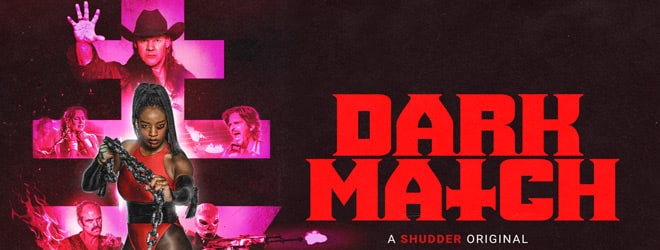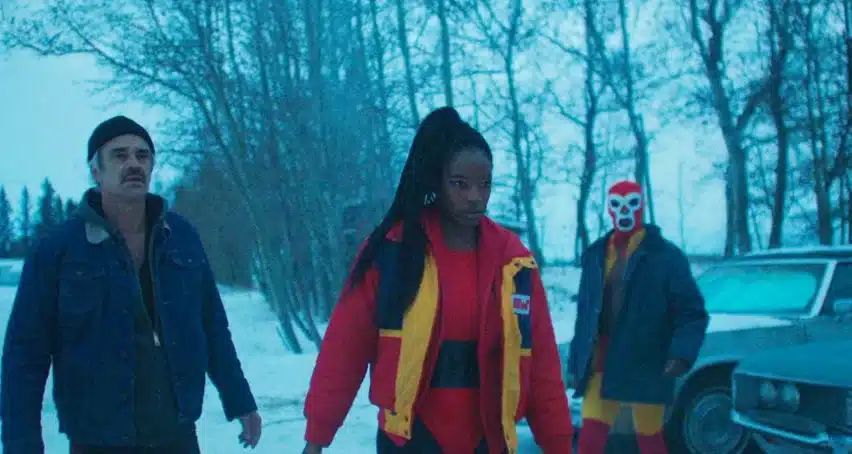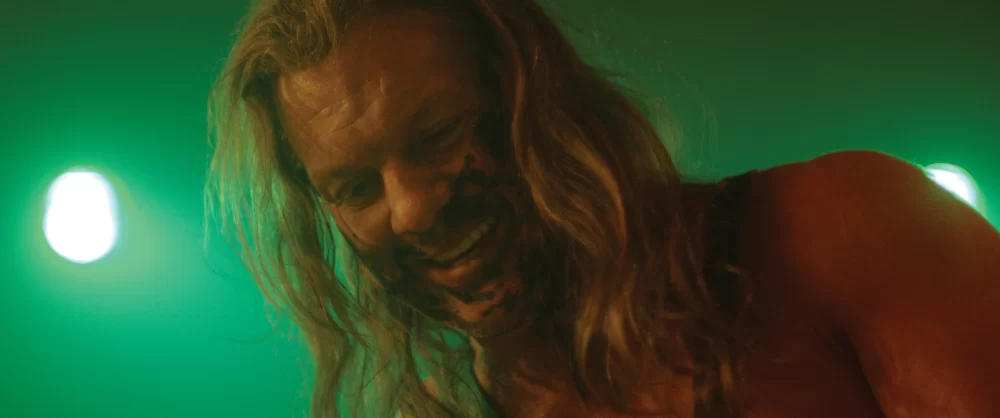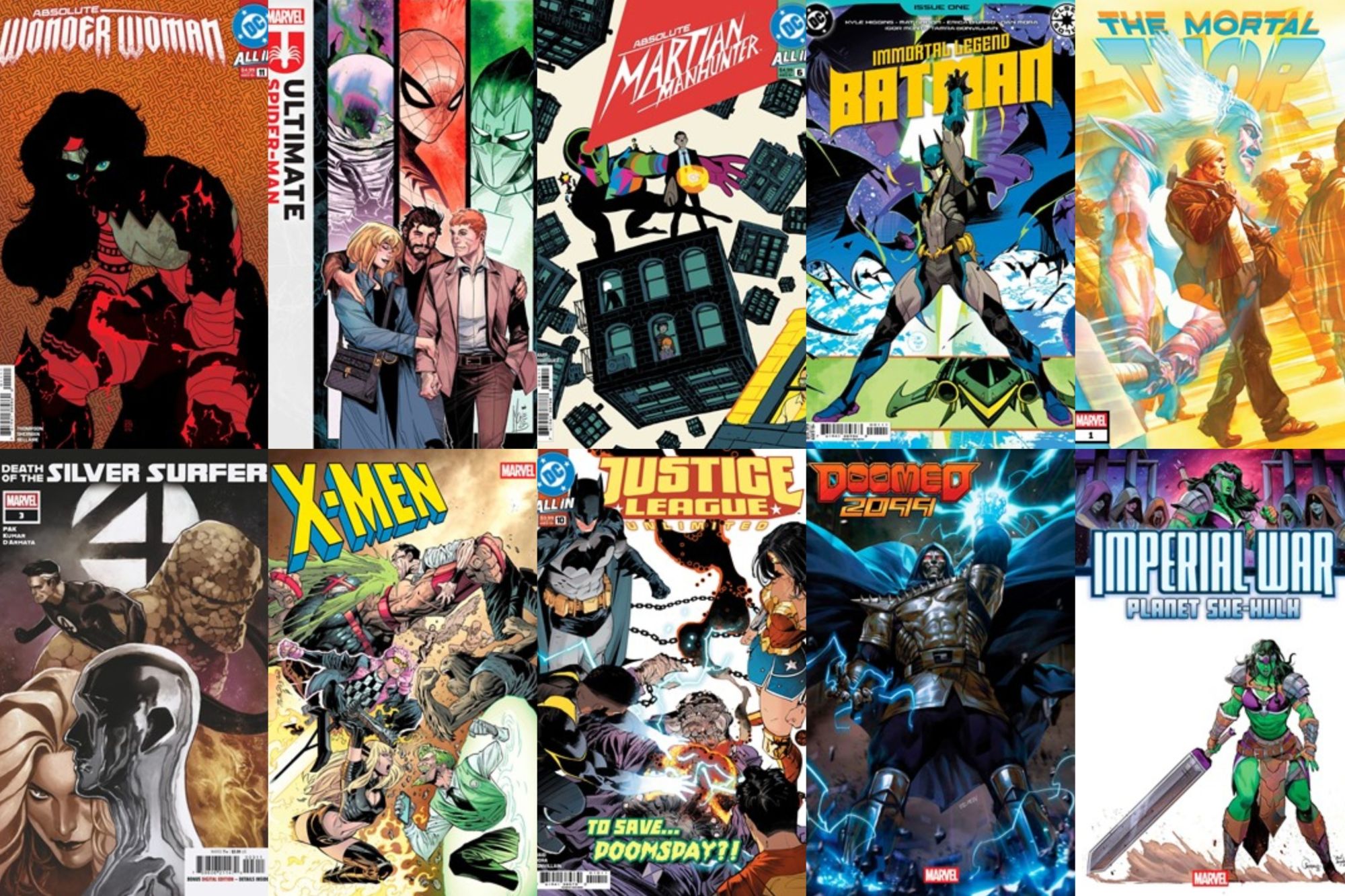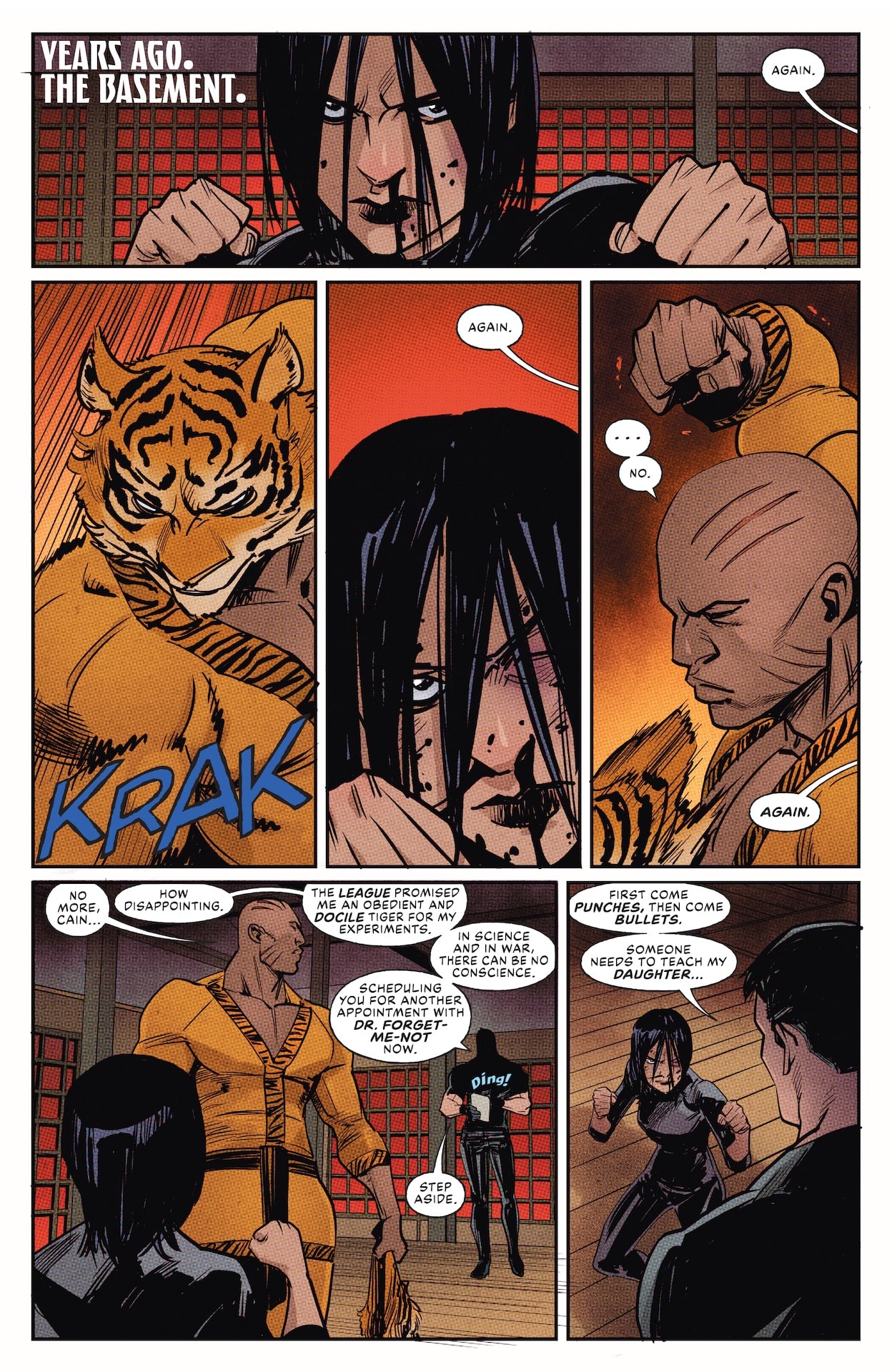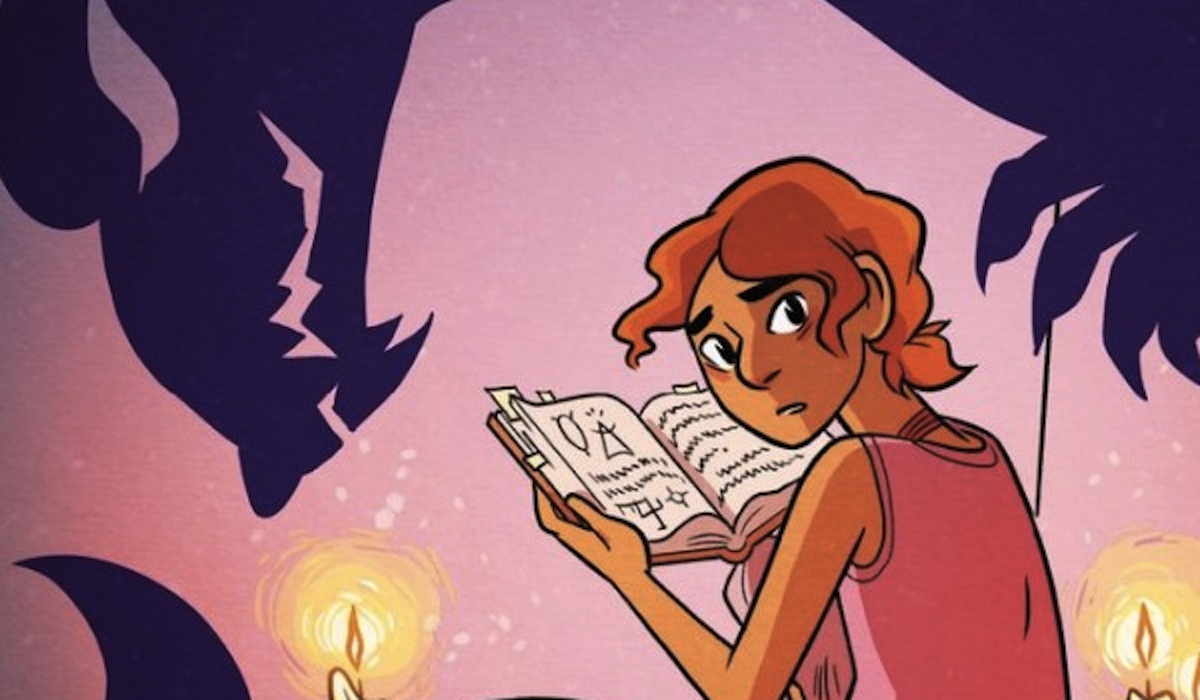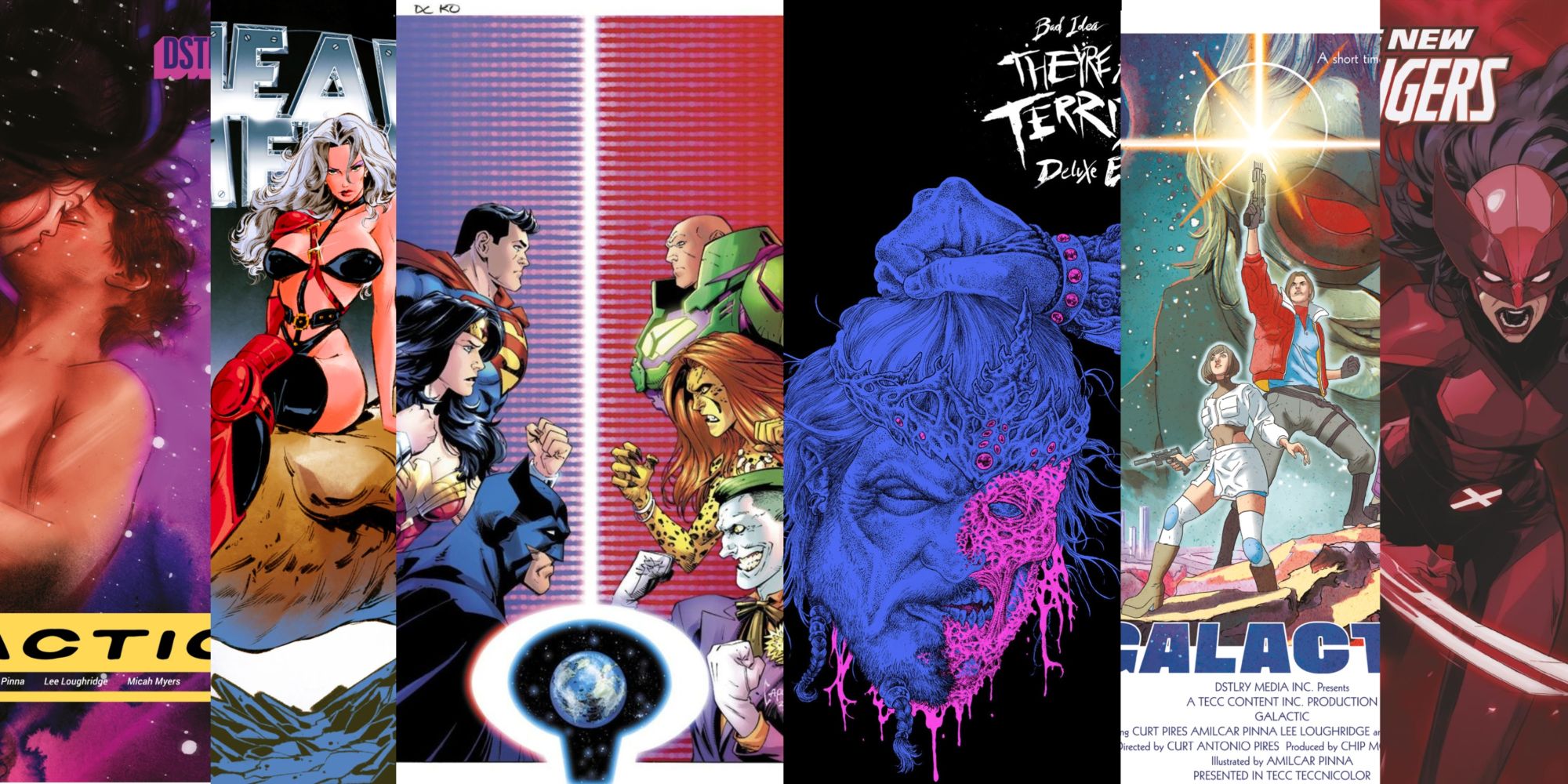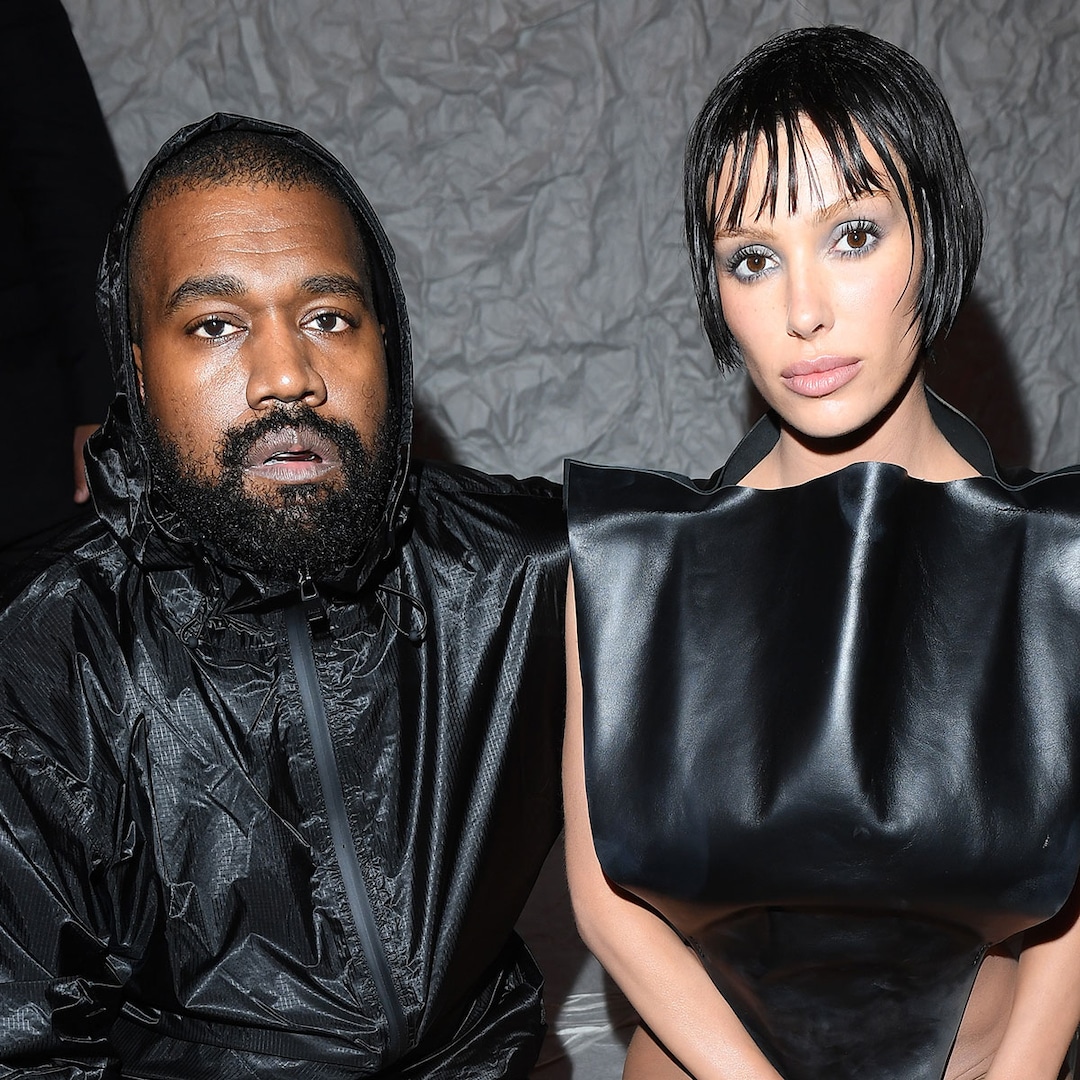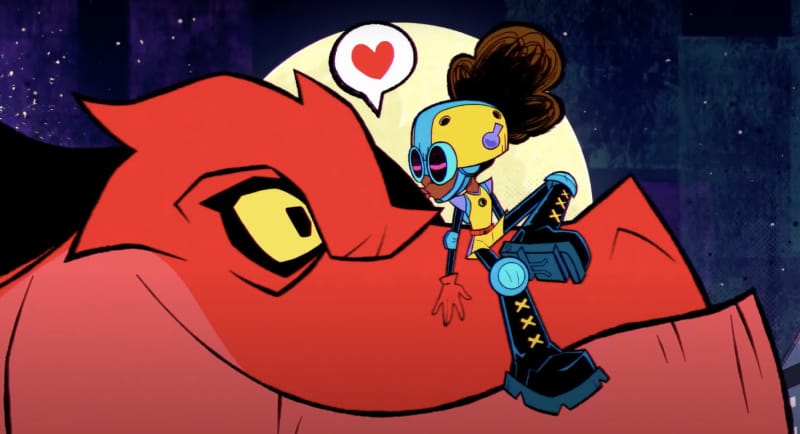
Before every video known to man was uploaded to the internet, wrestling fans that wanted a taste of the indies or foreign shows tried their luck at bootleg cassette tapes. Someone knew someone who had a tape with Japanese deathmatches on it, or exploding ring matches. The whole enterprise made it feel like getting your hands on one of these tapes was its own kind of sin. Like you were being handed a snuff film. This was the beyond extreme stuff, where blood flowed freely and broken bones were a guarantee.
A lot of myths and legends grew out of this, something that gave indie wrestling shows a different and darker kind of identity. Lowell Dean’s wrestling horror film Dark Match feels a lot like watching one of these elusive VHS tapes, a violent and brutal experience that plays with the idea of what’s real and what’s fake inside the ring. And it does a damn good job of conjuring fear while showcasing the weirdness that surrounds the very idea of wrestling.
Dark Match follows a very small indie promotion called SAW in the 1980s. They tape their shows in the hopes of getting enough money to keep the dream alive with their very small roster of wrestlers. The promotion’s manager, Rusty (Jonathan Cherry), gets a call out of the blue with a lucrative offer for a private show. With his main eventers leading the way, Miss Behave (Ayisha Issa) and Mean Joe Lean (Steven Ogg), Rusty accepts.
Upon arrival, they quickly realize that their audience carries itself like a cult, in a classic Hail Satan kind of way. In comes their Leader (Chris Jericho), a cowboy hat-wearing figure in a dark jacket that has clearly surrendered himself to the darkness. And then, the wrestling starts. But the rules have a deadly twist to them, and they can put SAW out of business by night’s end.
The first thing that needed to work for the movie to succeed was the wrestling, and it does on multiple fronts. Often, approaches to wrestling in film fall back on ‘Saturday morning cartoon’ stylings, diving headfirst into nostalgia to find an easy excuse to blow things out of proportion and hone in on the more ridiculous aspects of it. Director Lowell Dean sidesteps all these tired clichés for an honest and intricate look at the lifestyle of wrestling, fully embracing its culture.
Wrestlers live in kayfabe, in a state of make-believe that requires them to be in character every single second they’re out in public. This means that there’s a lot of character work to be had in the private moments. Dean brings that to the fore, focusing on how these performers safeguard their gimmicks (in-ring personas) while legitimately fighting for their lives in the situation they find themselves in. In a sense, and despite the occult themes, Dark Match is about kayfabe and how wrestling creates its own reality. The question isn’t about what’s real and what’s fake here. You simply have to accept it’s all real within the rules established in that world, something that fans of wrestling take to heart.
The performances sell this idea beautifully. In a sense, each actor has to pull double duty. They have to play both the wrestlers and the real people they are outside the ring. Ayisha Issa and Steven Ogg are standouts, balancing power and vulnerability even when things require both normal and in-ring personas to switch back and forth in a single sequence. It becomes very easy to care for these characters as a result. The same carries over to the remaining SAW roster. Each performer draws a lot of attention because you can see they’re constantly aware of the fact that breaking kayfabe is a matter of life and death, something sacred that has to be protected at all costs.
One such wrestler, called Enigma (played by SWA alum Mo Jabari), does not speak. He’s a high-flying luchador-style wrestler that enters the ring sporting a cape and lucha mask. His whole gimmick is that he’s this mystery man that comes in to kick ass and then leaves without saying a word. He lets his fighting and acrobatics do the talking. It’s endearing. You can’t help but feel for a guy that doesn’t betray his chosen career’s longstanding traditions even while fighting off Satanists that take deathmatches literally.
The horror side of things complements this focus on kayfabe. A lot is owed to the manner in which violence is used to make people worry over the wrestlers duking it out in the ring. It’s quite a measured approach. Blood is spilled liberally, but never to an unrealistic extent. It’s meant to keep things tragic rather than exploitative, making us fear for the characters’ safety and potential death (something that made Jeremy Saulnier’s Green Room such an exceptional film).
Few other stabs at wrestling in fiction, TV, books, or comics pull this off so gracefully. Two great examples of this that come to mind are John Lees and Alex Cormack’s comic The Crimson Cage and Joe Keatinge and Nick Barber’s comic Ringside. Both mix genres, horror and crime respectively, to look at how wrestling demands its people to live within the confines of kayfabe even when things take a turn for the worse. Chris Condon and Francesco Biagini’s Hell is a Squared Circle achieves this as well, along with Joanne Starer and Elena Gogou’s The Gimmick.
Dark Match is the equivalent of a five-star match. Director Lowell Dean goes through wrestling with a fine-tooth comb to craft a story that treats it with the respect it deserves. He lands on a rare fusion of genres that immerses viewers in a culture of violent entertainment without holding their hands. You’re supposed to engage with the movie and then catch up with it. Those that manage to do this are in for quite a show, the kind that you’d record on a VHS tape for repeat viewing, once upon a time.


